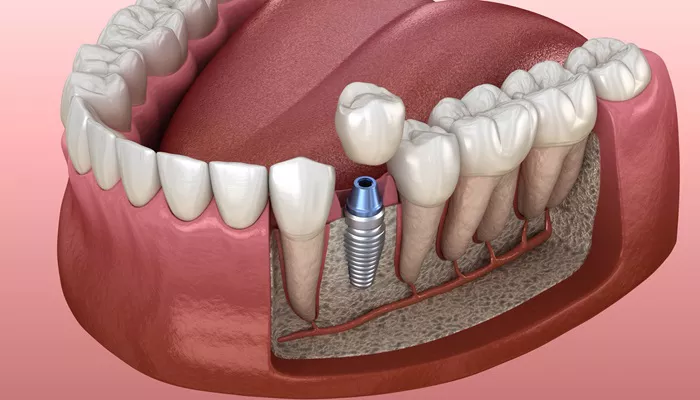Dental implants are a popular and effective solution for replacing missing teeth. However, like any medical device, dental implants can sometimes experience complications. One such complication is when the dental implant screw becomes loose or falls out. This article will guide you through what to do if this happens, explain the reasons behind it, and provide tips on how to prevent it in the future.
Understanding Dental Implant Components
Before diving into what to do when a dental implant screw falls out, it’s essential to understand the components of a dental implant. A typical dental implant consists of three main parts:
The Implant: A titanium screw that is surgically placed into the jawbone. It acts as the root of the artificial tooth.
The Abutment: A connector piece that is attached to the implant. It holds the crown in place.
The Crown: The visible part of the implant that resembles a natural tooth.
The screw we’re discussing is typically the one that holds the abutment to the implant. If this screw falls out, it can lead to the detachment of the crown from the implant.
What to Do When A Dental Implant Screw Falls Out
When you notice that a dental implant screw has fallen out, it’s crucial to act quickly but calmly. Here’s what you should do:
1. Save the Screw and Any Loose Parts
The first thing you should do is save the screw and any other loose parts you might find. Place them in a small, clean container or plastic bag. These parts are essential for your dentist to assess the situation and possibly reuse during the repair process.
SEE ALSO: What Are Dental Implant Posts Made Of?
2. Contact Your Dentist Immediately
As soon as you realize the screw has fallen out, contact your dentist. Dental implants require professional attention, and any delay could increase the risk of further complications, such as infection or damage to the surrounding tissues.
3. Avoid Chewing on the Affected Side
Until you can see your dentist, avoid chewing on the side where the implant is located. This will prevent additional stress on the implant site and reduce the risk of further loosening or damage.
4. Keep the Area Clean
Maintain good oral hygiene by gently brushing and flossing around the implant area. However, be careful not to disturb the implant site too much. Rinse with an antibacterial mouthwash to keep the area as clean as possible.
5. Avoid Self-Repair Attempts
It might be tempting to try to fix the problem yourself, but this is not advisable. Dental implants are precision devices, and improper handling can lead to further damage or infection. Leave the repair to a professional.
Why Dental Implant Screws Fall Out
Understanding why a dental implant screw might fall out can help in preventing future occurrences. Here are some common reasons:
1. Overloading the Implant
Excessive force on the implant, such as from grinding your teeth (bruxism) or chewing hard foods, can lead to the screw loosening over time. If you have a habit of grinding your teeth, your dentist may recommend a night guard to protect your implants.
2. Improper Placement or Angling
If the implant was not placed correctly, the forces exerted on it during chewing might not be evenly distributed, leading to loosening. Proper placement is crucial for the long-term success of a dental implant.
3. Poor Bone Quality or Density
The success of a dental implant depends on the quality and density of the bone where it is placed. If the bone is too soft or thin, it might not hold the implant securely, leading to loosening over time.
4. Infection or Peri-Implantitis
Infections around the implant site, known as peri-implantitis, can cause bone loss, which in turn can lead to implant failure. Regular dental check-ups and good oral hygiene are essential to prevent such infections.
5. Wear and Tear Over Time
Like any other dental device, implants can wear out over time. This is more likely to happen if the implant has been in place for many years or if the patient has multiple implants.
What Your Dentist Will Do
Once you visit your dentist, they will perform a thorough examination to determine the cause of the problem and decide on the appropriate course of action. Here’s what you can expect:
1. X-Rays and Examination
The dentist will likely take X-rays to assess the condition of the implant and the surrounding bone. This will help determine if the implant itself is stable or if there are signs of infection or bone loss.
2. Replacing or Tightening the Screw
If the implant and abutment are still in good condition, the dentist may simply replace or tighten the screw. They will ensure that the screw is properly torqued to prevent future loosening.
3. Assessing and Treating Infection
If there are signs of infection, the dentist will clean the area thoroughly and may prescribe antibiotics to prevent the infection from spreading. In severe cases, the implant may need to be removed and replaced after the infection has cleared.
4. Bone Grafting or Re-Implantation
If there has been significant bone loss, a bone graft may be necessary before a new implant can be placed. This process can take several months, as the graft needs time to integrate with the existing bone.
5. Checking for Bruxism
If bruxism (teeth grinding) is suspected, your dentist may suggest a night guard to protect the implant and other teeth.
Bruxism can exert excessive force on the implant, leading to complications.
Conclusion
A dental implant screw falling out can be a concerning experience, but with prompt action and proper care, it can be resolved effectively. The key is to act quickly, seek professional help, and follow your dentist’s advice to prevent future occurrences. By understanding the causes and taking preventive measures, you can enjoy the long-term benefits of your dental implants and maintain a healthy, confident smile.

